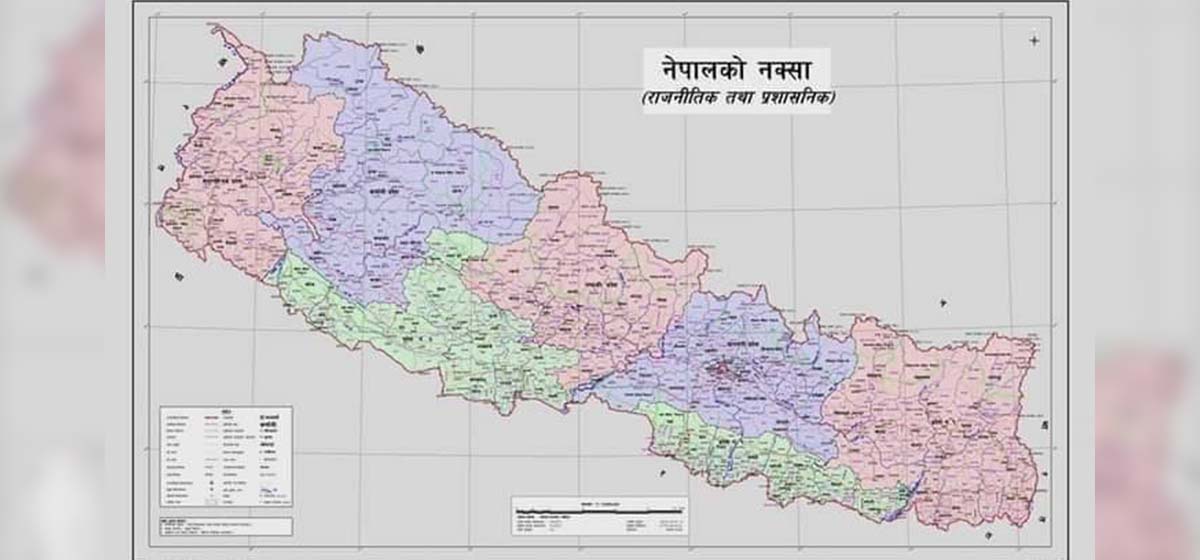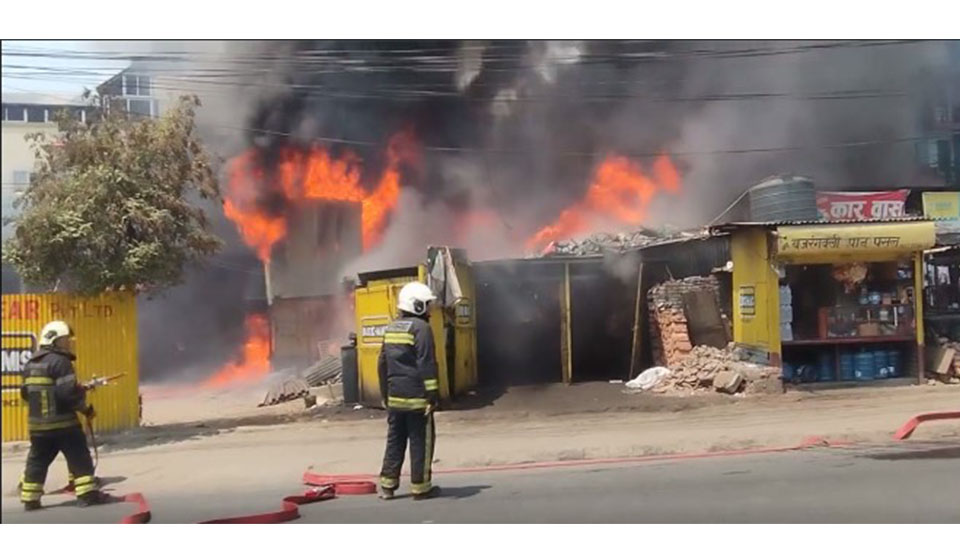
OR
#OPINION

Founded on transcendental heritages and religious and spiritual faiths of origin as a Hindu State, Nepal is an independent and indivisible sovereign state never been colonized. Diversities of hill topography, multiethnicity, multilingualism, multiculturalism and multi-religious values and system ensembled the idea of unity in diversity fostering a sense of shared purpose, identity, nationhood, unity, valor and patriotism.
A nation in holistic ascent is now in sharp decline, needing massive reformation against all ills contorted by the political characters ever since the 1990 democratic change and more so since 2008 when Nepal was without careful examinations turned into a secular Federal Republican state.
Politically divided as a country, national identity and culture, territorial integrity (open border is no border) and sovereignty, rule of law and governance, production and economy are in crisis. “Mother and motherland are greater and more sacred than heaven” emblazoned on the red banner of Nepal’s national emblem by the ancestors is dented. Preserving the nation is indispensable.
Learning from the Founding Father
The Founding Father, a symbol of national unity and valor, King Prithivi Narayan Shah (1723–1775), is remembered at this critical juncture when Nepal is in a bleeding stage. He had said to his legatees in his Divine Counsel, “It is with much hardship that I have attained this kingdom. It is a common garden for all castes and ethnicities. Let everyone comprehend this.” For him, corrupt officials (duty bearers) and ministers and those who take bribes and give bribes are the number one enemy of the state. He also provided directions to the governing elites on how to pursue governance, nationalism and foreign policy in order to sustain the country, which are appropriate even now.
Political characters and paradoxes
Excesses of incompetent leadership grabbing power in a cyclical order triggered failed governance and rule of law and rise in chronic corruption cases implicitly associated with syndicated ‘compromise and rule’ conduct among major political parties of diverse isms (Communism, Maoism,Leninism, Marxism, Republicdemocratism and socialism) is worrisome.
The inherent objective of federalism that is power devolution and delivery has been defeated by power centric tyranny of major political parties, who are ever busy in the musical chair-like cyclical leadership. This has undermined the significance of the democratic values and systems by which this country functions, the values that were established with the great sacrifice by national heroes.
Top political figures have turned into aristocratic tycoons and billionaires overnight. The leaders’ lust for power, posts and wealth resulted in unprecedented rise of irregularities virtually in every domain of state affairs.
Dependency syndrome and outsourcing
Ironically, Nepal turning into a Federal Democratic Republic in 2008 has yet no fruition, but failing and putting Nepal’s socio-economy and geo-politics at a greater risk. Political parties are exploiting flaws and pitfalls in state affairs while meeting their vested political interest.
This has resulted in wastage of national time, energy and resources.
Excesses of political tendencies to “outsource” development initiatives aspiring foreign charity and aid assistance in the name of development, becoming dependent upon external powers such as India, China and America, and scheming inhouse political games for personal profiteering, is catastrophic. Even employment provision is outsourced, draining human capital overseas at an alarming rate of approximately 800,000 people each year.
Unity in diversity is crippled in the absence of a balanced demographic spread and proportionate development of all the provinces due to ever increasing conglomeration of migrants from all over Nepal in Kathmandu valley whereby population density exploded to over 8 million and it became terribly a political employment center, making Federal Provinces inoperative.
Due to year-round political engineering and power games, and post-1990 governments which have lasted an average of nine months, the Five Year Plans (NPC) have been implemented dismally.
Reforms needed
A jumbo government team in the Federal setup has become a political recruitment center.
Escape fissures were trickly planned in the Constitution probably to shield oneself from anti-corruption raid or trial and punishment for any suspected misuse of power and authority and scams, including maintenance of longevity in power and power circle, from ‘cradle to grave’, meaning lifetime by the political party syndicate.
Nepal has a jumbo structure of an exceedingly high density of 36,000 elected representatives from the federal to local governments, 884 parliamentarians (334 federal lawmakers and 550 provincial lawmakers) and 130 ministers and 136,000 government employees, which need to be halved for affordability, value for money, efficiency and effectiveness. Digital database and e-governance can justify this cut.. Republican Democracy turned into Kakistocracy and plutocracy needs replacement by meritocracy.
Provinces, the second-tier government, which have become redundant and defunct, should be scrapped and power devolved to the local governments, making them more powerful and dutiful to promptly deliver.
You May Like This
_20230329122016.jpg)
Home ministers of all seven provinces meeting PM Dahal today
KATHMANDU, Nov 28: The home ministers of all the seven provinces are going to meet Prime Minister Pushpa Kamal Dahal... Read More...

Chief Minister Sherdhan Rai’s US visit courts controversy
KATHMANDU, Nov 12: The visit of Province 1 Chief Minister Sherdhan Rai to the United States of America following his... Read More...

Bir tender challenged at CIAA, corruption alleged
KATHMANDU, July 8: A complaint has been filed at the Commission for Investigation of Abuse of Authority (CIAA) against Bishal Pandit... Read More...




Just In
- Second T20 match: Nepal loses to West Indies ‘A’
- Bajhang by-polls update: 400 ballots counted so far
- Vote counting update: NC takes lead in Ilam-2
- People urged to take caution as Terai region including Lumbini province experiences sweltering heat
- School Principal arrested for allegedly facilitating fake examinees in Grade XII examination
- Stepdaughter arrested on charges of murdering her mother
- Five shops and a vehicle workshop gutted in Shankhamul fire
- Two agreements between private sector entities signed at Nepal Investment Summit









-1200x560-wm_20240427144118.jpg)




Leave A Comment